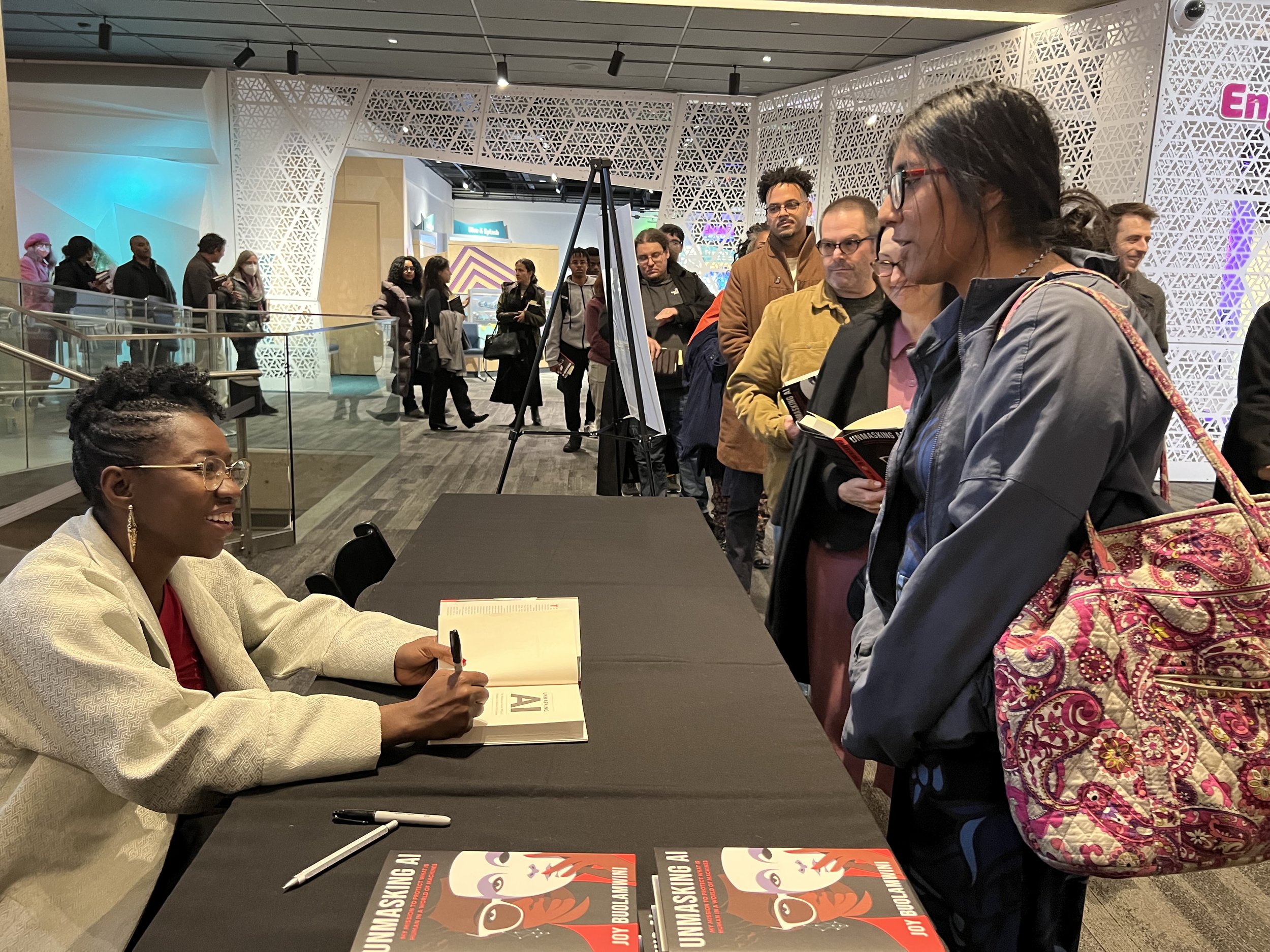A Night with Dr. Joy Buolamwini
At precisely 7:00 pm, amidst the hallowed halls of the Museum of Sciences, I stepped into an auditorium crackling with anticipation. Here, within the convergence of technology and the essence of humanity, the Museum of Science’s Cahners Theater was set for Dr. Joy Buolamwini's book tour, "Unmasking AI: Preserving What's Human in a World of Technology." Her name reached my ears nearly three years ago, introduced by iFp when exploring her remarkable strides in algorithmic justice and AI bias. Her name had since become a constant in our group discussions, and the prospect of finally witnessing her discourse was nothing short of exhilarating.
Dr. Joy has been a personal inspiration to me. Her unique talent for seamlessly integrating poetry with science, had a far-reaching impact than if I were to peruse scientific papers on AI bias. During her talk, her words weren't merely spoken; they were artfully crafted leaving everyone who encountered them with a sense of wonder. Highlighting the beauty and accessibility one can create with the intersection between art and science.
Among the myriad topics unveiled during this talk, one particular theme lingered persistently well beyond the event's conclusion—Dr. Joy’s perspective on challenging conventional/technical solutions to real-world problems. Dr. Joy's exploration into AI Bias began inadvertently during her PhD at the MIT Media Lab. She enrolled in the course “Science Fabrication” at MIT, leading to the creation of an "Aspire Mirror" inspired by the children's book "Anansi the Spider." This project, utilizing facial recognition software, encountered a startling obstacle: it failed to detect her face.
The mirror, designed to project inspiring images onto the face of the viewer, worked seamlessly when she wore a white mask. However, when she presented her own African-American face, the image failed to register. Initially, Dr. Joy sought to rectify this by considering the creation of inclusive data sets as a solution. As she assessed their performance against the biased ones, she paused to contemplate the potential harm and misuse that such datasets might entail. This decision ensured that technological advancements, especially in AI, serve to alleviate societal disparities rather than exacerbate them. And at times, the resolution to a problem doesn't have to involve a "technical" solution.
Dr. Joy’s talk was nothing short of visionary, and her work has shown us that science should not exist within an isolated realm of technicality but should embrace an open and welcoming approach, such that it is by and for the people, rather than detached entities operating in isolation. Overall, it serves as a reminder that the future of AI must be guided by our commitment to preserving what's inherently human.

